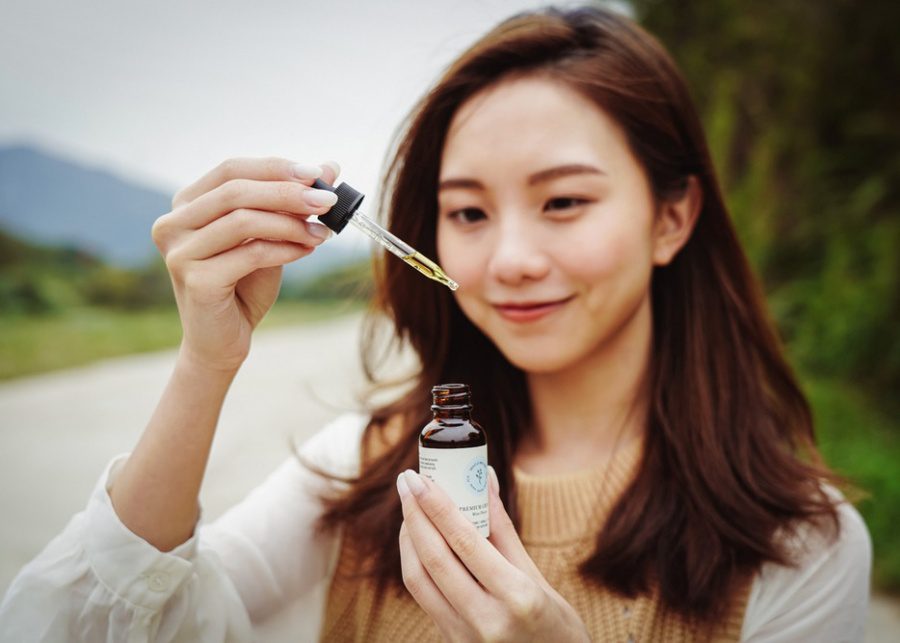In recent years, the beauty industry has witnessed a surge in the popularity of CBD oil as a skincare ingredient. Derived from the cannabis plant, CBD (cannabidiol) is non-psychoactive and packed with potential benefits for the skin. From soothing inflammation to combating acne and promoting overall skin health, CBD oil has emerged as a versatile and effective addition to skincare routines worldwide.

The Science Behind CBD Oil
CBD interacts with the body’s endocannabinoid system (ECS), which plays a crucial role in regulating various physiological processes, including inflammation, pain perception, and skin health. By binding to cannabinoid receptors in the skin, CBD exerts anti-inflammatory, antioxidant, and analgesic effects, making it a promising ingredient for skincare formulations.
Benefits:
- Anti-inflammatory Properties: CBD oil possesses anti-inflammatory properties, which can help reduce redness, swelling, and irritation associated with inflammatory skin conditions like acne, eczema, and psoriasis.
- Moisturizing: CBD oil is rich in fatty acids, which can help hydrate and nourish the skin, promoting a healthy and glowing complexion. It may be particularly beneficial for individuals with dry or dehydrated skin.
- Acne Treatment: CBD oil may help manage acne by regulating sebum production and reducing inflammation in the skin’s sebaceous glands. It also has antibacterial properties that can help prevent acne breakouts.
- Anti-aging Effects: CBD oil contains antioxidants, such as vitamins C and E, which can help protect the skin from environmental damage and signs of aging, such as fine lines and wrinkles. It may also promote collagen production, improving skin elasticity and firmness.
- Pain Relief: When applied topically, CBD oil can provide localized pain relief for conditions like arthritis, muscle soreness, and neuropathic pain by interacting with cannabinoid receptors in the skin and underlying tissues.
Side Effects:
CBD oil is generally considered safe for topical use, with minimal side effects reported. However, some individuals may experience:
- Skin Irritation: In rare cases, CBD oil may cause skin irritation or allergic reactions, particularly in individuals with sensitive skin or allergies to cannabis-related compounds.
- Dryness or Flakiness: If used excessively or in high concentrations, CBD oil may lead to dryness or flakiness, especially in individuals with already dry or compromised skin barriers.
- Drug Interactions: CBD oil may interact with certain medications when applied topically, particularly those metabolized by the liver enzymes CYP450. It’s essential to consult with a healthcare professional before using CBD oil if you’re taking any medications to avoid potential interactions.
How to Use CBD Oil for Skin:
- Patch Test: Before using CBD oil on a larger area of the skin, perform a patch test by applying a small amount to a small patch of skin and monitoring for any adverse reactions for 24 hours.
- Choose Quality Products: Look for high-quality CBD oil products specifically formulated for skincare, preferably containing full-spectrum CBD extract and natural ingredients. Avoid products with added chemicals or artificial fragrances that may irritate the skin.
- Start Slowly: Begin with a low concentration of CBD oil and gradually increase the dosage or frequency of application as needed. Monitor your skin’s response and adjust accordingly.
- Apply Properly: Cleanse your skin thoroughly before applying CBD oil to ensure optimal absorption. Gently massage the oil into the skin using circular motions until fully absorbed. Follow up with a moisturizer if needed.
Conclusion
CBD oil offers several potential benefits for the skin, including anti-inflammatory, moisturizing, acne-fighting, anti-aging, and pain-relieving effects. While side effects are rare, it’s essential to perform a patch test, choose quality products, start slowly, and monitor your skin’s response when using CBD oil topically. As always, consult with a healthcare professional if you have any concerns or underlying medical conditions.